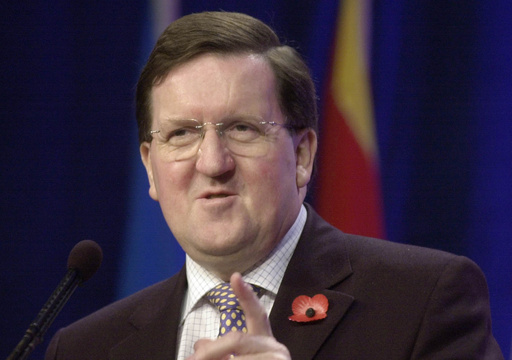Former NATO leader George Robertson has been chosen to head a review of the military strategy of Britain, aimed at countering what he refers to as the “deadly quartet” of China, Iran, Russia, and North Korea. Prime Minister Keir Starmer unveiled the strategic defense review shortly after taking office on July 5, with plans to reverse the military cuts seen under the Conservative Party’s rule. Starmer, from the center-left Labour Party, intends to raise defense spending to 2.5% of GDP, up from the current 2.3%, without specifying a deadline, to reinforce the country’s military capabilities.
According to the Ministry of Defense, the review’s objectives include enhancing homeland security, supporting Ukraine against Russia, and upgrading Britain’s nuclear arsenal. George Robertson, a former British defense secretary and NATO Secretary-General, will lead the review, supported by ex-White House adviser Fiona Hill and Gen. Richard Barrons, a former director of operations for the U.K. armed forces. Robertson highlighted that the U.K. and its NATO allies are facing a coalition of nations collaborating more closely, namely Russia, Iran, North Korea, and China.
While British authorities have avoided labeling China as a direct threat, they often describe it as a “strategic challenge.” Recently, during a summit in Washington, the Western military alliance referred to China as a key supporter of Russia in its conflict with Ukraine, marking a significant criticism of Beijing. China denies providing military assistance to Russia but maintains robust trade relations with the country amid the ongoing conflict with Ukraine.
Expected to deliver its findings in the first half of 2025, the review will shape Britain’s defense policy for the next decade. U.K. Defense Secretary John Healey emphasized the necessity of acknowledging evolving global threats and adapting military readiness accordingly to address the increasingly volatile geopolitical landscape and advancements in warfare technology.
Home World Live World Former NATO leader George Robertson appointed to head UK defense review, highlighting...
